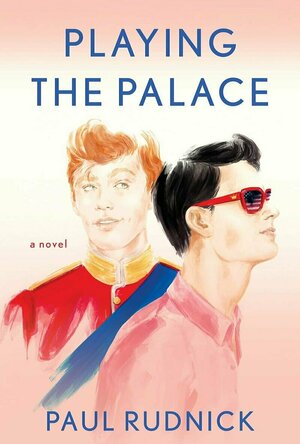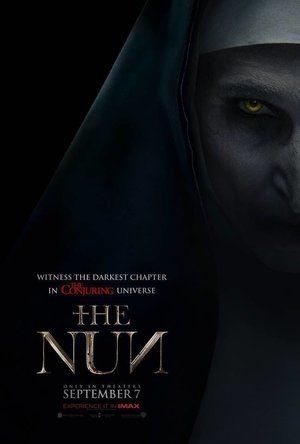
Women's Bible (KJV Audio Version with Red Letter)
Book and Education
App
Women's Bible. King James Version. Old Testament and New Testament. With red letters to indicate the...
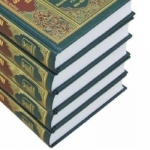
Set of 4 Hadith Books ( Sahih Al Bukhari & Muslim Authentic Book Of Islam ) ( Ramadan Islamic Apps )
Book and Reference
App
Al-Khawarizmi is a trusted name in Islamic Apps development for years. We have sold thousands of...
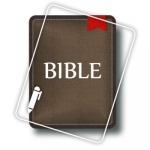
King James Bible. Red Letter Bible and KJV Version
Book and Education
App
The Holy Bible. King James Version. Old Testament and New Testament. With red letters to indicate...

Bible Offline App. Red Letter KJV Original Version
Book and Education
App
The Holy Bible. King James Version. Old Testament and New Testament. With red letters to indicate...
Kristy H (1252 KP) rated Playing the Palace in Books
Jul 29, 2021
"He was destined to become the king of England, and I was a nice Jewish boy from New Jersey; we both knew what we were supposed to be doing, but we were fighting it. When it came to emotional stability, neither of us had a prayer."
This is a cute and funny story overall. We have Carter, who is reeling from a breakup and does not feel worthy of love and then Edgar, who is scared to trust. It's not easy to be in a relationship when you're the Prince of England. As Edgar states, he's "a symbol and an institution." The two meet at the United Nations and there's definitely some insta-chemistry, but they are also pretty sweet together. You can't help but root for this pair.
"Because ever since I can remember, there's been only one unthinkable sin, and that was disgracing my family and my country, in any way. I was being held to a different standard, which I agreed with. I had one job: to represent the royal household and to make England proud, and I was a calamity."
The book is a little ping pong-ish in its highs and lows. Everything is good... and then it's not. Rinse and repeat. At times, it seems a little insane that Edgar and his family cannot trust Carter, yet you can understand how utterly crazy and invasive the British media is--we see it all the time. I would have liked to see the two communicate a bit more, but new relationships are hard.
The cast of characters in PALACE are wonderful--completely engaging. Carter's family and friends are adorable, especially his sister and aunt Miriam. They make you laugh and cry. There's an excellent vomiting scene with poor Carter that will have you cringing and chuckling. Parts of this story are just plain hilarious. But it's also serious in its look at finding love after loss, insight into homophobia, and seeking acceptance for yourself and your partner, no matter what kind of relationship you may be in.
Overall, this is a fast and fluffy romantic read that also offers a good take on acceptance. 3.5 stars.

100 Yoga Spa Relax Music
Health & Fitness
App
100 Yoga Spa Relax Music - The Greatest Yoga,Spa,Meditation,Healing and Manifestation Collection...

New King James Version Bible. KJV Holy Scripture
Education and Lifestyle
App
New King James Version Bible List of chapters (Old Testament): Genesis, Exodus, Leviticus, Numbers,...
Lee (2222 KP) rated The Nun (2018) in Movies
Sep 6, 2018 (Updated Sep 7, 2018)
We're in Romania, 1952. A large, remote, creepy looking convent is having trouble trying to contain something dark and evil, resulting in one of the nuns hanging herself. The body is discovered by Frenchie, a local farmer bringing supplies from the nearby village. When word gets back to the Vatican, priest Father Burke (Demián Bichir) is sent, along with Sister Irene (Taissa Farmiga) to investigate.
They learn that the convent was built in the middle ages by the Duke of St Carta who, while being possessed, also created a gateway from hell somewhere within its basement. Religious figures were able to seal the gateway using the blood of Christ, but during the second world war bombings resulted in the seal being broken, releasing the demon Valak. Since then, the nuns have engaged in constant prayer in an attempt to keep evil at bay.
As you'd expect, the whole tone of this movie is very dark, and very gloomy. It takes a while to get going, and there is nothing of interest to keep you hooked. Aside from Sister Irene, the characters are dull, and occasional attempts at humour fall flat. The tense expectation of chills and scares soon fizzles out when you're realise that there really aren't any. Just plenty of prolonged periods of quietness, followed by LOUD NOISE!! Which may work for some people, but I just found it annoying.
The characters wander around dark corridors, playing on the whole creepy castle vibe, and shadowy nuns are everywhere. Valak himself occasionally appears, but it's nothing more than an attempt at a jump scare. The whole thing just seems like such a wasted opportunity and I found myself looking at my watch even during the climactic scenes where they're trying to seal the gateway once more. Not good for a movie that's only 96 minutes long.
The one thing I did like is how they managed to link everything back to The Conjuring movies, in particular the opening scenes of the original movie where the Warrens are giving their lecture, and the consequences that brings for the rest of the movies. Aside from that I just found the whole thing disappointing.
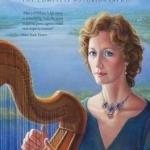
Travels with My Harp: The Complete Autobiography
Book
Mary O'Hara's life story is something only the most inspired press agent could ever hope to concoct'...

Bible Lock Screens™ - Bible Wallpapers / Backgrounds
Lifestyle and Photo & Video
App
#1 Most Popular Christian Wallpaper App ---------------------------------------------- Bible Lock...
